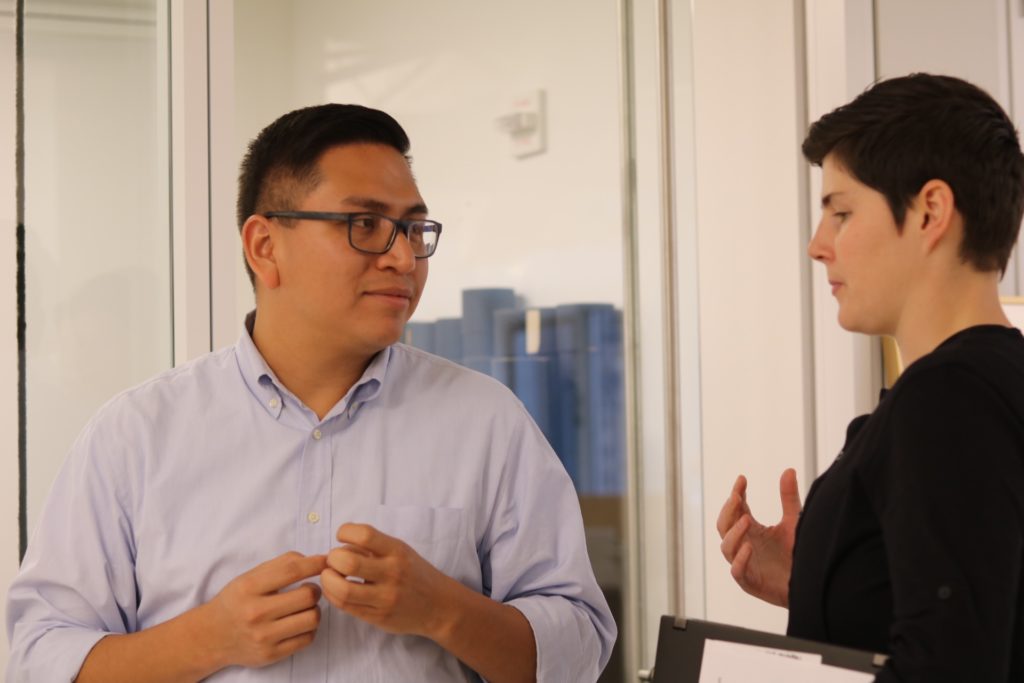Walter Barrientos is the Long Island Coordinator for Make the Road New York and a community partner collaborating with RPA on our fourth regional plan for the New York metropolitan region. Renae Widdson, RPA intern and graduate student at Pratt Institute, interviewed Walter about Make the Road on Long Island and their partnership on the fourth plan, A Region Transformed, to be released this fall.
RW: Given your participation in the fourth regional plan, what are the most important needs of the communities you serve?
WB: I think the issue of political representation of underserved communities and historically underrepresented communities is critical. In order for the priorities that we have set forth in this plan to move forward, we need everyone to participate. And we need all the people whose lives will be most impacted by these changes to be active participants in making these changes happen. We need to look at the ways in which political power of working class, low-income communities and communities of color have been diluted in the region and the ways in which the votes and the voices of community members have been alienated or just plainly excluded.
One critical piece that we have brought to the table has been the issue of non-citizen voting. We are a long way from having that conversation as a country—the role of immigrants in federal elections. But I think there’s something to be said for immigrants voting in elections that impact their schools and their local municipalities as a way of promoting vibrant communities that are active participants in the planning process.
RW: Racial and economic justice have been central to the fourth plan community partnership. Can you talk about strategies you use for promoting racial and economic justice in the region?
WB: Critical for our partnership with RPA has been figuring out the connection between inclusive communities and other social justice principles and values. Understanding the zoning and planning process was critical, particularly in a place like Long Island where the exclusion of certain communities was almost mastered. A critical strategy for us is working with RPA to take a deep dive in analyzing the systemic ways we can change this pattern.
We see inclusionary housing as a way to really change the pattern of segregation and all the other social issues that derive from that—concentrated poverty, lack of opportunity, lack of economic development. And if we look at these issues in a deeper way, we ultimately get to political representation—which goes hand in hand with segregation and the way these systems were designed.
RW: How has your organization changed as a result of the partnership with RPA on the fourth regional plan?
WB: Over time, our work has evolved. We have come to a place where we understand the analysis and insight and power that RPA has, the authority that RPA has to talk about some of these issues. And we understand our role in helping RPA understand the local flavor, the way in which these issues are talked about at the local level. This enables RPA to interject themselves into the conversation in a way that promotes broader solutions for equity and access without sounding like the people from above, the people coming from the city to the suburbs to tell people how to do things.
And I think that’s been one of the most reassuring parts of our partnership and one of the things that makes us most excited about what it will look like for us to continue in partnership with RPA to promote the principles and priorities we have developed over the last three years.

RW: What is your advice to urban planners who are trying to incorporate underrepresented voices?
WB: Forge genuine partnerships with community organizations and meet them where they are at.
This process with RPA has really captured the spirit and challenges of that process and it’s been a real educational process for both sides. Going through that process has helped us get to the point where we get to have conversations about some of the real issues that underlie the challenges we have on the planning side as well as on the community side. And I think that is really the perfect recipe for forging true partnerships that will withstand the test of time and the test of political currents; that will be able to transform our communities to be the inclusive and empowering places that they should be.
